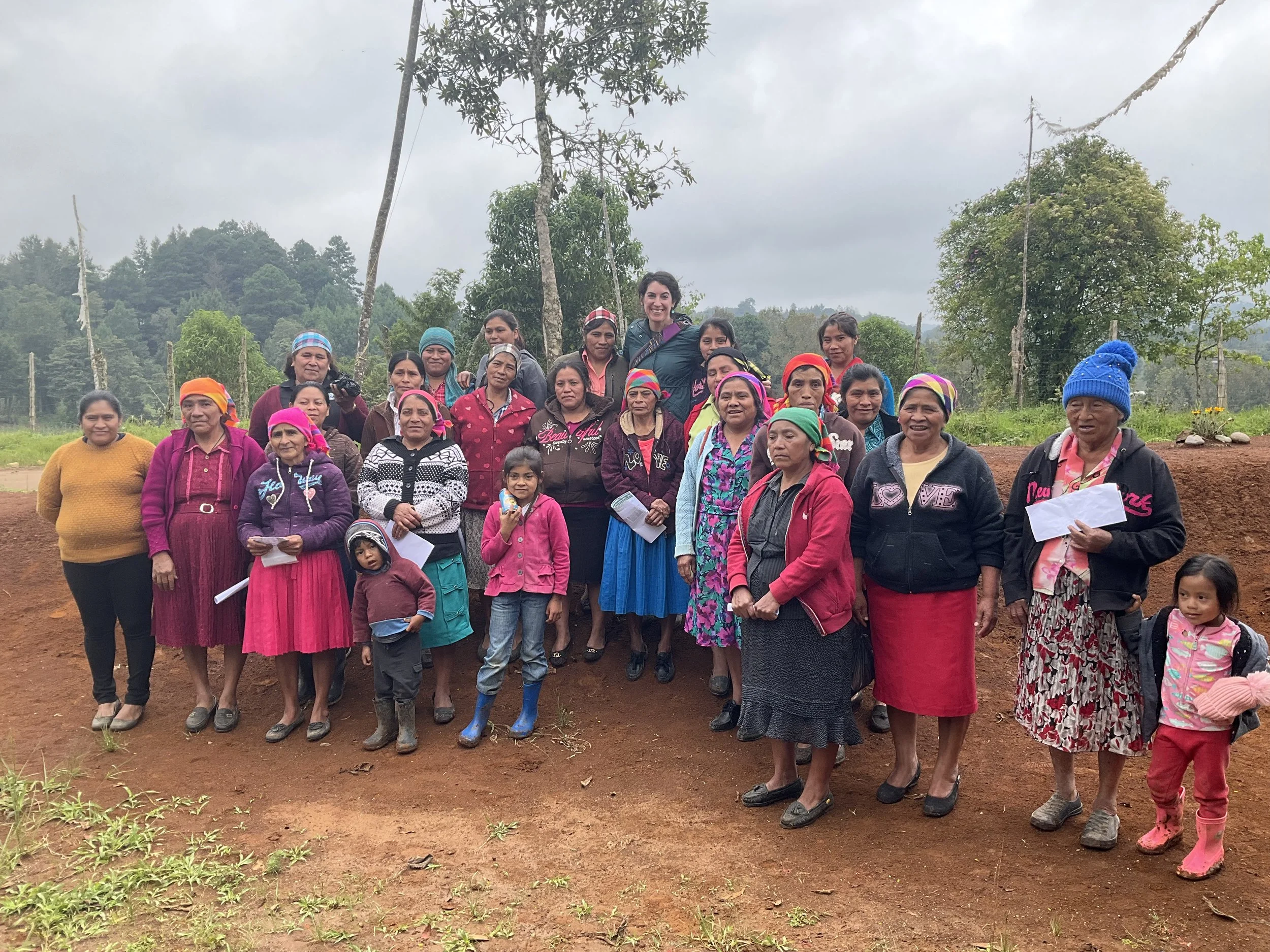Conservation on the Ground
Within two weeks of having legally created a new 12,600 acre national Wildlife Refuge Suyapa - Luís Hernán Valladares Baca “Mero” on the edge of Tegucigalpa, Honduras, it was set ablaze. Today, some 5% of the 59,000 acre La Tigra National Park, in Tegucigalpa is on fire, and the capital is shrouded in smoke.
Walking towards ‘Buen Vivir’ (Good Living)
With a solid trajectory, FUNDEBASE has been walking hand in hand with Indigenous farming communities in Guatemala for 28 years. The organization is committed to respecting and preserving Mayan knowledge, wisdom and cosmovision, focusing on food production through Agroecology.
Conveners in Action
The theme of Trees, Water and People’s 25th anniversary year has been People over Projects - which recognizes that the processes we undertake are ongoing, and depend on people with stable economic and social footing to get done well.
Sustainable Living in San Francisco de Opalaca:
In the heart of the Opalaca Biological Reserve, nestled between the departments of Intibucá and Lempira in Honduras, Indigenous communities are making significant contributions to conservation through the adoption of the Justa 3D Stove.
3 Years After the Storm…
Back in November 2020, Hurricanes Eta and Iota (category 4 and 5) hit Central America with devastating force, causing rivers to overflow, washing out roads and bridges, eroding farmland, and flooding entire communities.
Lifting Women’s Voices during The Climate Week of Indigenous Peoples and Local Communities of Mesoamerica
TWP had the privilege to host 13 of our partners and community leaders from Guatemala, Honduras and El Salvador at the first Mesoamerican Indigenous People and Local Communities Climate Week.
Mesoamerican Indigenous People and Local Communities Climate Week
Earlier this month we had the pleasure of hosting 13 of our partners and community leaders from Guatemala, Honduras and El Salvador at the first Mesoamerican Indigenous People and Local Communities Climate Week, which took place in Panama City.
A Maestra Fogonera Leads a Network of Lenca Women in Honduras
At Trees Water and People (TWP) we recognize and value the fundamental role that women have historically played in agriculture, food production, and the development of their communities. To make decisions in these areas they have faced diverse challenges for the enjoyment and equality of rights for a dignified life.
The Sawdust Carpets of Suyapa
For decades, the community of Aldea de Suyapa has followed in a Latin American tradition of creating an Easter procession route through their community, marked by a series of sawdust carpets, designed and created by local youth. This is a tradition dating back hundreds of years, with strong continuity in Mexico and Central America.
Triquilapa and Cantagallo Declared a Wildlife Refuge
This month we celebrate alongside our partner the Ecological Committee of La Aldea de Suyapa (COEAS) the upcoming declaration by the National Congress of Honduras of the Triquilapa and Cantagallo Mountains as a Wildlife Refuge. The mountains of Triquilapa and Cantagallo are located to the east of the Central District, Honduras, ten minutes from the Aldea de Suyapa, also a cultural heritage of the country. These geological formations are the largest suppliers of water for La Aldea de Suyapa and surrounding communities, and have an endemic biodiversity of subtropical dry forest.
The Next Generation
What comes to your mind when you hear the word “Youth Development”? To us at TWP, we think of it as: acknowledging that the next generation will inherit the earth, and need to be involved in its care today.
A labor of love: Dignified Livelihoods at TWP
“We seek to help create work opportunities that people can be proud of and that contribute to a higher standard of living.”
At TWP we believe everyone deserves a dignified livelihood. A dignified livelihood is more than income security, it's one that provides a safe and enjoyable environment, that ensures dignity and respect and gives constant opportunities to transcend barriers and grow. At TWP, this starts from within.
Indigenous Sovereignty in Aldea de Suyapa, Honduras
One of Trees, Water & People 's priorities is to defend Indigenous sovereignty, where Indigenous communities have a say in any decisions that affect their land, resources, people, culture and governance.
In Honduras, the Indios Laborios de la Aldea de Suyapa are on the verge of a big win for their sovereignty, in declaring 5,000+ hectares of their communal forest a nationally registered Wildlife Reserve, to be co-managed by local communities.
Indigenous Sovereignty in Guatemala
For centuries, Indigenous People all over Latin America have struggled with colonization, displacement, territorial rights, and reclaiming their indigenous sovereignty. In Guatemala, the civil war (1960-1996), sparked the displacement of thousands of people across the country, forcing them to migrate to other neighboring countries. After the Peace Accords in 1996, many families returned from Mexico, where they had taken refuge.
TWPs Five Community-Centered Priorities
In 2023, Trees, Water & People (TWP) will celebrate 25 years of creating environmental, social, and economic impact for frontline communities most affected by climate change.
Bringing A Cookstove Intervention Full Circle
Have you heard of helicopter research? It basically means researchers from wealthy countries conduct studies in lower-income countries, collect samples, analyze and publish findings with minimal involvement from local experts, and offer no benefits or report-back information for communities. This is also called neocolonial, parachute, or parasitic research and can be found across scientific disciplines. As a multi-disciplinary researcher in Epidemiology and Anthropology, I cringe to write this. It is familiar both within my own experiences and what I know from colleagues.
A Gender and Youth Justice Approach
The Covid-19 pandemic has exposed and exacerbated the inequalities and vulnerabilities experienced by indigenous, rural and “campesino” communities. Girls and women are the populations that have faced most of the challenges. The confinement and the economic crisis impacted the worsening violence, greater care work responsibilities and a decrease in women's income, which was already precarious and unequal before the pandemic.


















